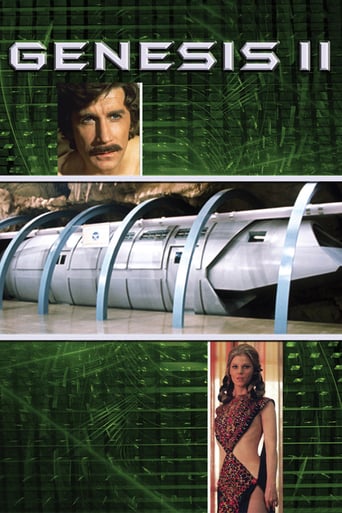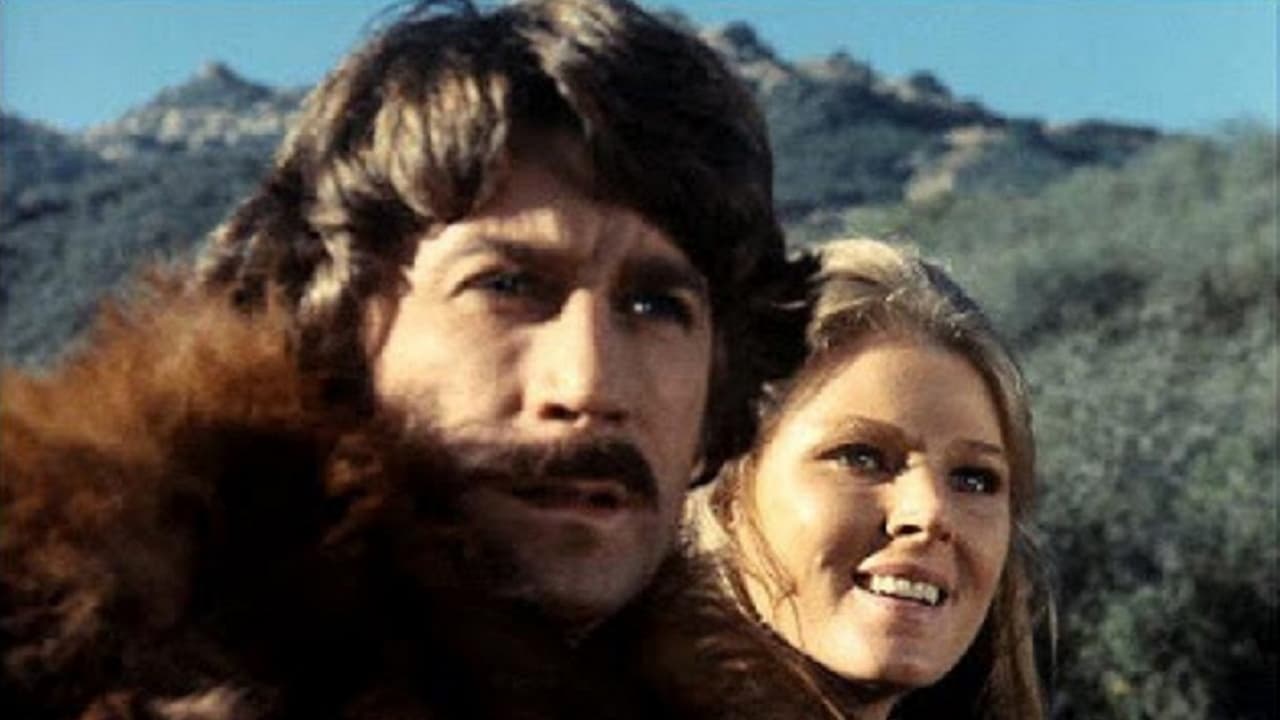dwoo522@nyc.rr.com
The other reviews need to keep in mind that this was pilot. It is a far different premise from Star Trek. It was the first shot at a new show for Roddenberry after Star Trek. This does not include pilot that was also a Star Trek episode, Assignment Earth. Genesis II is told from the point of view a 20th century scientist living in post apocalyptic world. The show had potential for many themes that also ran through Star Trek that Roddenberry was interested in.The networks liked it enough to make a second version called Planet Earth with John Saxon taking the lead roll from Alex Cord. It is too bad that neither show got picked up.
midge56
This was the first of 3 pilots which started with Roddenberry's theme about someone from the past waking up in a post apocalyptical future. Roddenberry also wrote a second movie, Planet Earth with the same concept and characters. But despite the fans love for Roddenberry, he really missed the mark on this one. This theme was just the opposite of what the baby boomers wanted to see and the opposite of the Star Trek Utopian society. Even the third film without Roddenberry, had the same problems.The reason Star Trek was so popular was because it was a Utopian futuristic society which had risen above wars, violence, disease, poverty, racism and discrimination. It depicted mankind learning from its mistakes and building a peaceful society of exploration, cooperation, invention and forward progress. That Utopian approach appealed to the war weary viewers of this era.This Trilogy about Pax did exactly the opposite. It showed the degradation of society. Each film, while claiming Pax peace... was filled with violence, segregation, themes of hatred and slavery. Themes of technological regression. These were the very things that this generation of viewers hated. No one wanted to see shows depicting societal disintegration and backward momentum into archaic, violent existences. These were offensive themes which no one wanted to view even once, let alone on a weekly episode.Even worse, the interpretations of ideal societies as depicted on these shows such as an ancient Rome type of society... were the perceptions and desires of people born in the 20's instead of the views of the generations who were the target audience... the baby boomers.Our generation hated wars and poverty, discrimination, big brother, environmental damage and establishmentarianism most of all. They wanted to see peace, progress, no poverty, no disease, clean air, no fossil fuels, technological advancement... just like Star Trek.This trilogy was just the opposite of the themes preferred by both the peace generation or the yuppie generation that followed. Both generations were antiwar. Conversely, this PAX series was one violent conflict after another despite the fact that they called their society by a name for peace. It was just the opposite. Even worse, the core character from the past was a violent man who managed to judge and then destroy one society after another. In this story, it is the Mr Macho main character against an entire Amazonistic society. This kind of macho mentality did not go over well with the baby boomers either.The first 2 movies written by Roddenberry had the same core problem as the last version which he was not affiliated with. Don't get me wrong. I also idolized Roddenberry but it seemed like no one involved with these movies understood why these three movies failed to generate a series. They simply did not get it... which is surprising considering that Roddenberry was the one who originally understood the concept of the Utopian society during the strong anti-war, pro-peace sentiment of the 60's and 70's.Perhaps if they had created a truly peaceful, technologically advanced, futuristic society for this series... it might have worked. But all three of these movies were simply unpleasant to watch. Most of us watched them out of respect for Roddenberry in the hope that he had come up with a new series. We continued to hope that they would learn their lesson in the 2nd and third movie but no such luck. It just went downhill from the onset.At the time these pilot movies were made, we had no conception that society would truly degrade as it has over the past 10 years. Who could imagine that it would go backward and not learn from its mistakes. Fortunately, Roddenberry never saw what society finally became in the 21st century. But when these shows were made, our generations still believed it would improve. How could we have guessed otherwise. While there may be some truth in how a post apocalyptic society might degrade in some distant future... our target generations were not interested in seeing it. We wanted to see forward momentum and progress... not the opposite. Thankfully, they brought back Star Trek until Berman finally managed to destroy that as well... with the same narrow minded thinking as was depicted in this violent trilogy
doctardis
This was supposed to be a possible series that combines several themes from Star Trek. It takes place on Earth after a nuclear war, and some of the inhabitants faired differently depending on the area. This is similar to the Omega Glory. Some of the people have adapted and evolved into stronger humans as in Space Seed. Some lived under ground like in Spocks Brain. As in Star Trek, this is a small morality play.The main character is a man from the 20th is awakened, and he has lost scientific knowledge needed by everyone. It found by a group called Pax. They want to end violence on Earth and restore it. They get around the earth in a high speed underground train called a "sub-shuttle." This survived the war. You can clearly guess that in each episode they would visit a different part of Earth in the same way Star Trek visited other planets.This was not turned into a series, but was reworked into another pilot starring John Saxon. He was more of a Captain Kirk like lead.Either version would have made a good series.
Jo-26
As you would expect from Roddenberry there are many themes about the good and bad sides of human nature explored, and his optimism about the fate of the Human race shows through as it often does in Star Trek.The plot follows a scientist who is researching suspended animation in deep underground caverns. He is supposed to be asleep for a week, but due to an Earth quake he is buried for 150 years.When he awakes, he finds his world has been destroyed by war. PACS - a group of Unisex humans live underground, while the mutants (the only outwardly sign being 2 navels!)live outside. Little is know about the ancient technology of the Nuclear Power plants and both sides fight to have the "man from the past" help them.The moral dilema for out hero is which side he chooses to help.Despite its age, this film ain't too bad. There's no flashy special effects , but an entertaining moral tale against slavery and oppressive regimes.
Look out for Gene Roddenberry's wife making an appearance (better known as Counsellor Troi's Mother in Star Trek The Next Generation).



 AD
AD



